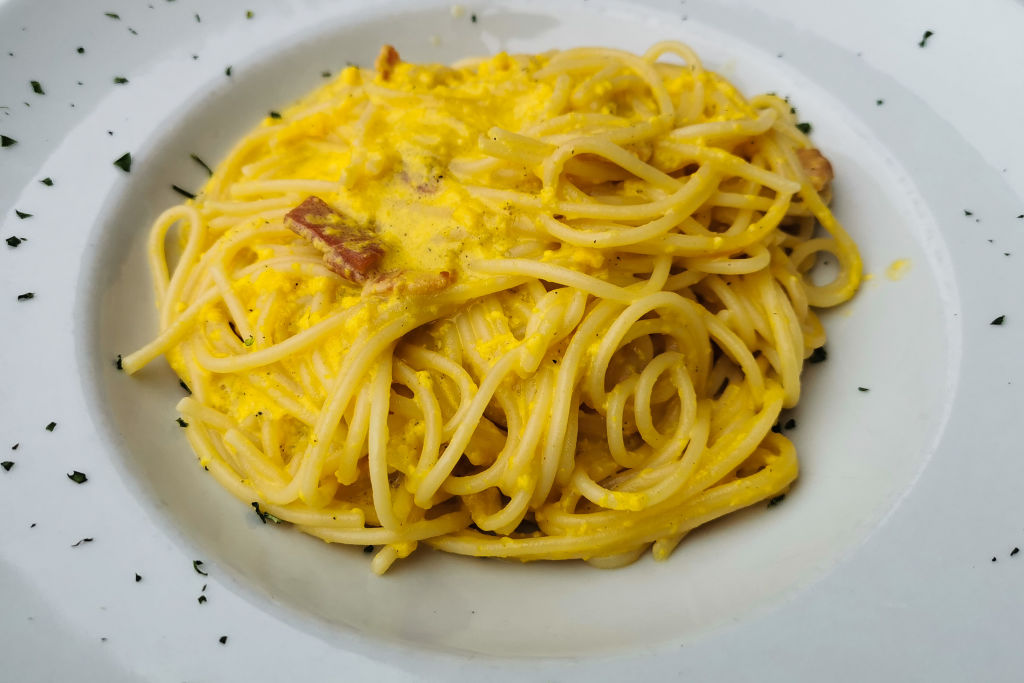A fresh controversy is simmering inside the European Parliament, and this time, it’s not about legislative deadlines but pasta.
Italian officials are calling for immediate checks after a batch of ‘Italian-style’ products appeared on the shelves of the Parliament’s first-floor supermarket.
During a visit to the Parliament on Monday, Italian Agriculture Minister, Francesco Lollobrigida, spotted a series of items with tricolore branding and Italian-sounding names. One item in particular caused diplomatic distress: a Carbonara sauce.
“All these products represent the worst of Italian-sounding. It is unacceptable to see them on the shelves of the Parliament’s market. I have asked for investigations to be carried out immediately,” he said on social media.
Top conservative ECR lawmkaer Carlo Fidanza, head of the Italian delegation and coordinator in the agriculture committee, backed the minister’s fury with chapter-and-verse legal references.
According to Fidanza, the products in question may violate EU rules on food labelling, which prohibit the use of misleading symbols or evocations of origin.
“The improper use of symbols or references, in this case, references to ‘Italianness’ on products that do not come from Italy, may constitute a deceptive practice and therefore be prosecutable,” he said in a statement
Defending the authenticity of Italian agri-food products, he added, is “not just an identity battle but a matter of transparency and consumer protection.”
Fidanza also said that Parliament President Roberta Metsola had been asked to launch formal checks.
Food fights
Food rarely escapes politics in Brussels, and Carbonara-gate is just the latest flare-up.
In 2024, many MEPs from far-right Patriots of Europe, along with staff from several Eastern European delegations, rallied behind a viral email sent by Slovak assistant Ivan Lehotský.
In a long and unusually heartfelt message, he lamented that while Western European cuisine is widely represented in Parliament canteens, Eastern European dishes are “almost completely absent.”
He even urged the institution to hire at least one chef from the region to ensure that staples like Szeged goulash, halászlé, or Czech vepřo-knedlo-zelo could finally make it onto the menu.
The European Parliament did not respond to Euractiv’s request for comment by the time of publication.
Maria Simon Arboleas contributed to this report.
(mm)


Dining and Cooking